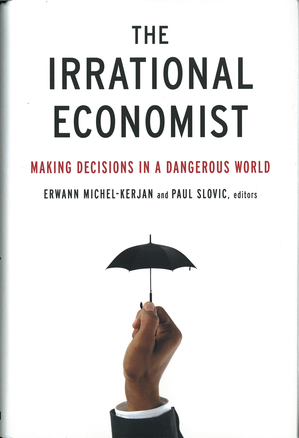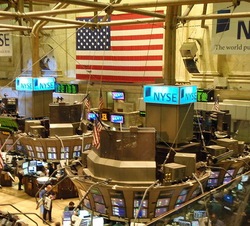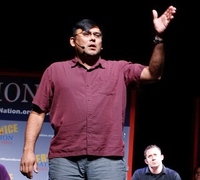 Before the financial meltdown and the subprime mortgage fiasco, the field of economics was enjoying an unparalleled time of mass consensus, according to Paul Krugman, the New York Times columnist and Nobel Prize-winning economist. Seduced by their elegant math, most economists believed that market forces had been tamed, and those who had doubts still believed any hiccups could be corrected by the Federal Reserve.
Before the financial meltdown and the subprime mortgage fiasco, the field of economics was enjoying an unparalleled time of mass consensus, according to Paul Krugman, the New York Times columnist and Nobel Prize-winning economist. Seduced by their elegant math, most economists believed that market forces had been tamed, and those who had doubts still believed any hiccups could be corrected by the Federal Reserve.
Turns out they were extremely wrong.
A new anthology, The Irrational Economist, coedited by UO psychologist Paul Slovic, argues that economists’ misjudgment of people is as much to blame for the downfall of the market as their misjudgment of the markets themselves.
“Economists have long held that those who participate in the market are rational because, if they weren’t, the markets would take advantage of them, and they’d lose money,” said Slovic. “But psychologically we know our feelings can breed bizarre things when it comes to decision making.”
Believing that markets induce people to act rationally, economists have long ignored empirical studies by psychologists who have analyzed the idiosyncrasies of the human mind, he said. Slovic, for example, has famously examined why people muster far less sympathy for cases of genocide than for tragedies affecting a single person. In his chapter in the book, “The More Who Die, the Less We Care,” Slovic explains why this is the case when it seems more rational to have more sympathy for larger body counts.
“Our brains just weren’t designed to process crimes on that scale with such huge death tolls,” he said. “This sort of nonrationality has been observed for decades, but until recently it’s been ignored by economists.”
The title of the book is thus not a bit of name calling but rather a description of the editors’ vision of future economists: those who include the study of human decision-making in their evaluation of markets. The book is comprised of 30 chapters written by authors from around the globe who have studied and advocated for the blending of psychology and economics. Chapters range from the nitty-gritty “Neuroeconomics: Measuring Cognition and Brain Activity During Economic Decision Making” to the sociological “Superstition: A Common Irrationality?”
Psychologists’ ideas about economics started to gain wider recognition in 2002 when Israeli psychologist Daniel Kahneman won the Nobel Prize for his work in behavioral economics, Slovic said. Since the financial crisis, it’s only gained more momentum. “It’s a real revolution that’s about to happen,” Slovic said. “Economics has to be informed by carefully observing behavior. You can’t just understand markets by dreaming up assumptions about how humans behave.”
— Marc Dadigan
Download Paul Slovic's chapter, "The More Who Die, the Less We Care."




 Learn how experts across disciplines are together advancing green chemistry.
Learn how experts across disciplines are together advancing green chemistry.